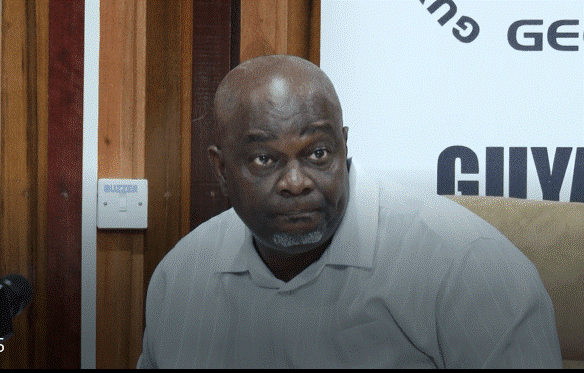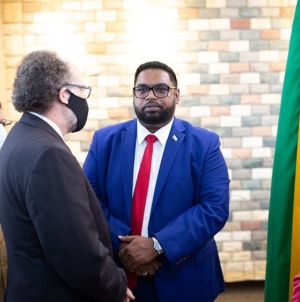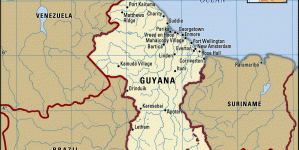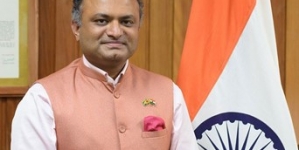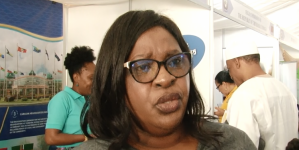GECOM has solid legal grounds to fire Lowenfield – Jamaica Gleaner Editorial
See below an Editorial published by the Jamaica Gleaner today:
Final courts, according to the famous aphorism of the US Supreme Court justice, Robert H. Jackson, are not final because they are infallible. “… We are infallible,” he said, “only because we are final.” But even when we disagree with the rulings, we accept them as indispensable to the fabric of justice and the maintenance of the rule of law, the absence of which is anarchy and chaos. That’s the foundation of democratic order.
It is against this backdrop that this newspaper urges Guyana’s caretaker A Partnership for National Unity (APNU) government, and its leader, David Granger, to accept last week’s ruling by the Caribbean Court of Justice (CCJ) of its jurisdictional competence to hear the case, in favour of the opposition People’s Progressive Party/Civic (PPP/C) on the approach to determining the outcome of the presidential and legislative elections of more than four months ago. The APNU’s position would be without prejudice to its rights to any other legal remedies by way of the constitution and in accordance with the CCJ’s findings.
SOLID LEGAL GROUNDS
At the same time, if Keith Lowenfield, Guyana’s chief elections officer, continues to stall in delivering a final count in accordance with the request of the Guyana Elections Commission (GECOM), he should be fired forthwith by that body for gross insubordination and the task given to his deputy, or any other person with the competence to produce the result – even if GECOM has to issue an order to give effect to this move. GECOM would be on solid legal grounds.
Guyana’s Election Laws (Amendment) Act of 2000 says, at Section 18, that the chief elections officer “shall, notwithstanding anything written in any law, be subject to the direction and control of the commission”.
Moreover, GECOM’s ability to have someone else declare the election result would be the same authority it employed when it ordered a recount of the votes of the March 2 poll, with oversight from Caribbean Community (CARICOM) monitors. That is, Section 22 of the Election Laws Act, that allows GECOM to resolve difficulties not anticipated in existing laws, to issue orders it considers “necessary or expedient for removing the difficulty”, even if this may mean modifying the legislation.
In the March election, the APNU was initially reported to have won the election by a small margin, having ostensibly racked up a huge win in the largely urban Region 4, to overcome a huge deficit in rural districts where PPP/C has most of its votes. That outcome was contested, leading to the CARICOM-brokered recount, which gave PPP/C a narrow victory.
However, Mr Lowenfield, at odds with the CARICOM overseers, issued a report that eliminated several thousand votes. He argued that irregularities and fraud invalidated the votes of several ballot boxes. He was, nonetheless, ordered by GECOM to produce a final report on the basis of the agreed, recounted numbers. Complainants would then properly pursue their claims in the high court, by election petitions, as provided for by the constitution.
EXCLUSIVE JURISDICTION
Before the GECOM instruction was acted on, a private citizen went to Guyana’s Court of Appeal for orders that the GECOM recount process had established a new regime for the conduct of elections; and that Section 177 (4) of the Guyana constitution gave that court exclusive jurisdiction on matters pertaining to the election of the president.
The appeal court, by majority decision, agreed with those arguments and further said that votes, in the context of the elections, should be interpreted to mean “valid votes”, which Mr Lowenfield saw as vindication of his own position.
The CCJ, however, asserted that the election of a president under Guyana’s system of proportional representation was not separate from the election of the electoral lists with which the candidates stand. It is the list that gets the most votes whose named candidate becomes president.
In the circumstances, the carve-out of the appeal court’s original jurisdiction under Section 117 (4) of the constitution, it said, was very limited in its application, relating specially to the qualification of a candidate for the presidency and the interpretation of the constitution. In that respect, the application of this provision, the CCJ held, was premature, given that a president, the person identified from the party list that received the most votes, would not be determined until the voting process was completed and the returns made. The implication, therefore, is that questions about voting irregularities would have to be settled by the high court.
The APNU may disagree with the court, but in democratic systems the rule of law prevails. Further, Guyana’s stability is at stake, a situation exacerbated by the country’s ethnicity-based politics, with black Guyanese mostly supporting Mr Granger’s party, and ethnic Indians backing the PPP/C. This crisis demands statesmanship.

















